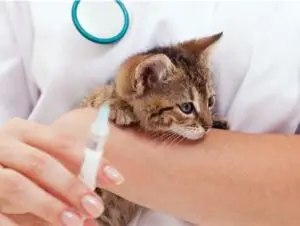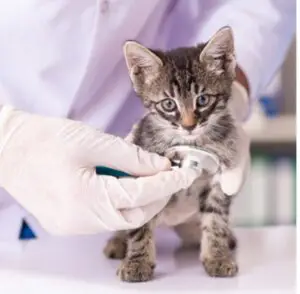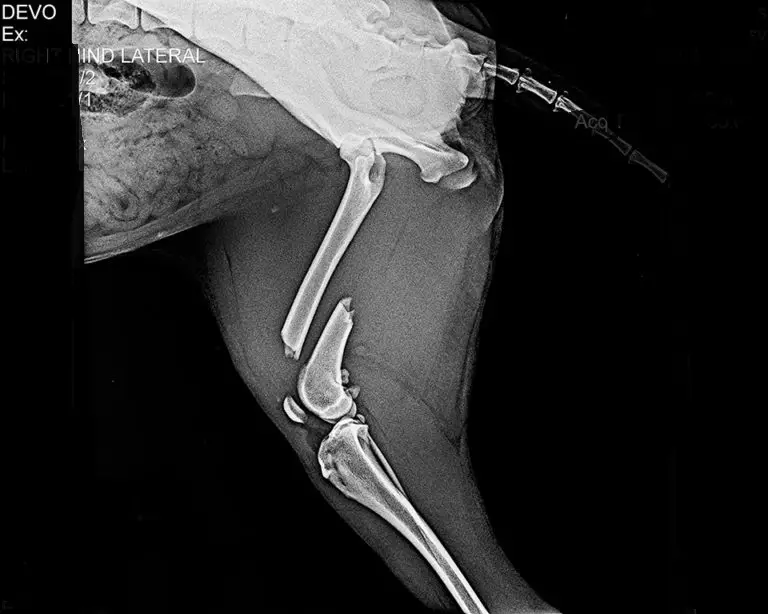During this phase, your pet will move from total dependence, (birth – neonatal stage) through weaning (transitional stage) and into early adolescence. Great change and rapid development hallmark this period. Many important systems not fully developed at birth will be by the time they reach adolescence.
Your pet’s bones are rapidly growing via open growth plates and their long bones will grow significantly, as they work towards the final body size. Diet is important to ensure their bones have necessary nutrients in the correct ratios.
Their digestive system is going through significant changes as they move from suckling milk to eating solid foods. They will move from no teeth, through to deciduous teeth, finishing with their adult teeth between 4-5 months of age.
The nervous system is poorly developed at birth – eyes closed, poor movement co-ordination, limited reflexes. Play is an important tool for the body learning how to move.
The immune system is “naïve” to the dangers they will face. Their only protection is from the immunity cells they get from their mother in the colostrum they drink in the first 48 hours. But these cells will eventually die (last 6-12 weeks) and from that time they will need to rely on their own immunity.
This is also the age of learning. There is a specific period called the socialisation period (between 6-12 weeks) where they categorise things into “nasty” or “nice” and form social bonds. It is vital that they are exposed to their world in a positive way (the new family, visitors, other dogs or cats, collars/leads and cat carriers).
Good Nutrition:
The goal is to support the rapid bone growth and systems development. We recommend a premium (complete and balanced, with high quality nutrients) food designed for this life stage (Puppy and Kitten). For dogs, better brands provide options which have been specifically formulated to ensure the right balance of important elements like calcium and phosphorus to match the ideal growth rate of the bones specific for small, medium or large breeds. This can help minimise the impact of diseases like hip and elbow dysplasia later in life.

Some brands (e.g. Hills) also have DHA which supports brain and neurological development. Because their digestive system is still developing, it is best to avoid a wide variety in their diet, sticking to one brand (and even flavour) as much as possible. It is also important that you feed your pet with several small meals during the day, as their stomachs are very small (approx size of a walnut in kittens!).

Vaccinations:
Because the immune system is still developing defences against nasties like viruses, pets have very little protection against common diseases like parvo or cat flu.
Vaccinations work by giving the body a safe form of the virus, triggering the immune system to develop a protective response (immunity). This response will also protect against the real virus. As immunity takes weeks to develop, having it ready when your pet is exposed to the real virus can be lifesaving. This is why vets recommend vaccinating for all pets. We recommend starting at six weeks (as this is when their “mother’s immunity” will start to wear off) continuing through to 16 weeks. They will not be fully protected until they have that final 16-week vaccination. For this reason we recommend that puppies should not go for walks, go to rivers or beaches and stay away from other dogs until two weeks after the programme is finished.
Flea & Worm:
Both these parasites rob your pet of nutrition. They can also cause damage to the developing skin and intestines, which can lead to long term problems like allergies. Treating these is important throughout their life, but especially crucial in the early stages due to their immature immune system.


Vet Checks:
Congenital (born with) diseases like heart murmurs, neurological diseases etc will show in the first few months of life. Getting your pet vet checked is the best way to find these early in life. Also, your vet can advise you on genetic diseases your pet may be more likely to develop during their lifetime because of their breed. The impact of many of these can be reduced by taking preventative action.
The classic example is hip and elbow dysplasia in large breed dogs, like Labradors. We cannot alter the fact that this breed is more prone to develop the disease, but we can reduce the impact as they become adults. For example, feeding the right diet from weaning, moderated exercise until their growth plates close (15-18 months) and ensuring they stay at an ideal body score (avoiding obesity). Poodles are very prone to dental disease and the puppy stage is your best opportunity to train them for teeth brushing to reduce tartar build up and the need for dental care as they become adults. We can advise whether your brachycephalic (short nosed) puppy would benefit from corrective surgery at neutering to improve breathing and minimise longer term negative changes.
Pet Insurance:
“I only wish I had Insurance” is a common phase, but now, we are starting to hear “thank goodness I have insurance” instead. We all hate “exclusions” so, get your pet insured before they experience any problems while they are in the kitten or puppy stage.
Get into an habit of budgeting for this in the same way you do for feeding and vaccinations etc. This decision may save their life down the road, making it easier for you when you are facing major sicknesses or surgeries. You want to be focused on getting them better rather than what it will cost.

There are a wide range of choices so it is highly likely you will find a company and option to suit your needs and budget. If you would like more information, we have an excellent pamphlet on Pet Insurance available at the clinic or our team is happy to help (and of course, major companies all have websites you can review). In addition, we have several companies that offer free trial insurance for puppies or kittens, which is a great way to get started.
Behavioural Growth:
As stated earlier, puppies and kittens are born with no fear or social skills. They need to learn what is “good” and what is “bad” for them – what to draw closer to and what to run away from. This is a natural defence against things that can really harm your pet (for example – avoiding cars). However, your puppy or kitten can easily learn to be frightened of the wrong things. If they are exposed to things in the wrong way at this stage, they may start to develop anxieties and phobias (a fear that is not in proportion to the level of danger). So, it is important that you expose your pet to as many experiences as you can, and for the things you want them to “like” take care to do this in a fun, friendly way.
A classic example is the cat carrier. Most of us wait until they need to be transported to the vets or a boarding cattery to introduce them to these for the first time. They are placed in the carrier, travelled by car, and then end up at a strange place. What assumptions will they make about whether the cat carrier is friend or foe?? Compare this with leaving the carrier out in common spaces, playing with your kitten in the carrier and even feeding your kitten in the carrier, before travel is needed. The positive impressions created here will be enough to over-ride the less frequent negative experience of the car ride etc. There is a series of great videos in YouTube in the “CatCare Library” under Cat Carrier Training if you wish to explore more of this.


This phase is important for socialising with humans and other animals (especially dog to dog). For puppies, focus will be socialisation with humans and other dogs, to avoid fear aggression or other anxieties. Teaching your pet to be happy when you are not at home is also important, to avoid separation anxiety. We can help with behavioural advice, puppy schools designed to help with behavioural training through this stage and pheromones for both puppies and kittens that help with socialisation and reducing fears. As behavioural problems are the most common reason for the euthanasia of dogs under one year of age, we cannot stress how important is it to ensure your pet has the best start in life.
Best Starts:
You can see that what happens in this stage of their life has such a big impact on the rest of their life.
Our team has developed a best start visit for you and your pet, where we can talk about this important stage in more detail, and provide useful handouts. Best of all, this visit is free of charge, because we are as committed as you to ensuring your pets have a long and healthy life with you.




